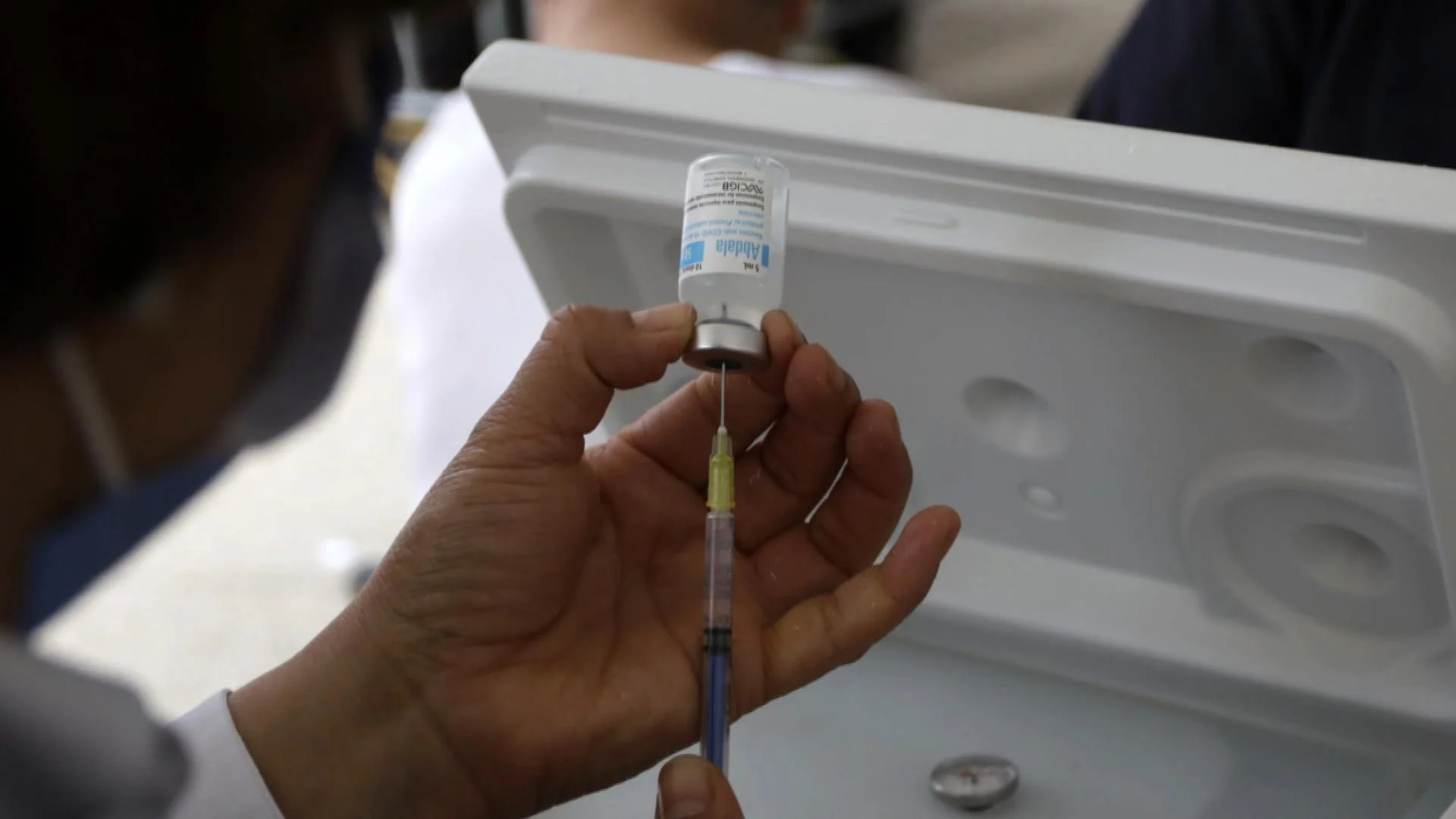In the ongoing global effort to provide clear and comprehensive information regarding public health, regulatory bodies continuously update their guidance based on new data and insights.
The U.S. Food and Drug Administration (FDA) has recently taken a significant step in this direction. The agency has officially finalized and publicly announced new warnings for the COVID-19 vaccines manufactured by Pfizer and Moderna. These updated warnings specifically highlight certain cardiac risks associated with these widely administered mRNA vaccines. This move is a direct follow-up to proposals first outlined in letters sent to both Pfizer and Moderna in April.
The expanded warnings are designed to provide the public with additional, more detailed information concerning the potential risks of developing myocarditis (inflammation of the heart muscle) and/or pericarditis (inflammation of the outer lining of the heart). Both of these conditions, while rare, have the potential to lead to long-term heart damage if left unaddressed or if severe. This update specifically pertains to Pfizer’s Comirnaty vaccine and Moderna’s Spikevax vaccine.
While Pfizer and Moderna have included text about myocarditis and pericarditis in their vaccine labeling since 2021, the FDA’s recent action mandates the inclusion of more explicit and detailed information, particularly emphasizing the increased risks observed in specific demographic groups, notably young men. This commitment to transparency ensures that individuals and healthcare providers have the most current and detailed safety information available to make informed decisions about vaccination.
The Updated Warnings: Specifics on Cardiac Risks
The FDA’s revised warnings provide precise details on cardiac risks, particularly for younger male recipients.
Quantifying Risk: Incidence Rates and Demographics
The updated labeling for Pfizer’s Comirnaty and Moderna’s Spikevax COVID-19 vaccines now includes highly specific and quantitatively derived information regarding the risks of myocarditis and pericarditis. This precise data aims to provide a clearer understanding of the potential cardiac adverse events. The new required text states that, “Based on analyses of commercial health insurance claims data from inpatient and outpatient settings,” the estimated unadjusted incidence of myocarditis and/or pericarditis during a specific window post-vaccination is now detailed.
The data indicates that within the period 1 through 7 days following administration of the 2023-2024 Formula of mRNA COVID-19 vaccines, the approximate incidence rate was 8 cases per million doses for individuals aged 6 months through 64 years. However, the warning specifically highlights a distinct and higher risk for a particular demographic.
For males between 12 and 24 years of age, the estimated unadjusted incidence of these cardiac conditions was approximately 27 cases per million doses. This explicit detailing of incidence rates, broken down by a specific age and gender group, represents a significant enhancement in the transparency of vaccine-related risks. It allows individuals, particularly young men and their parents, to have a more precise understanding of the potential, albeit still rare, cardiac side effects associated with these mRNA vaccines. This specificity is crucial for shared decision-making in healthcare.
Long-Term Cardiac Outcomes and Ongoing Research
Beyond simply quantifying the immediate risk, the updated FDA warnings also delve into the available information regarding the long-term cardiovascular outcomes for patients who have experienced COVID-19 vaccine-associated myocarditis. This follow-up information is derived from a longitudinal retrospective observational study. The study specifically focused on hospitalized patients who had been diagnosed with this condition post-vaccination. The majority of these patients had received a two-dose primary series of an mRNA COVID-19 vaccine prior to their diagnosis of myocarditis.
A critical finding from this study, detailed in the new warning, is the observation that at a median follow-up of approximately 5 months post-vaccination, persistence of abnormal cardiac magnetic resonance imaging (CMR) findings that are a marker for myocardial injury was common. This means that a significant number of individuals who developed myocarditis after vaccination showed continued signs of heart muscle injury on advanced imaging several months later.
However, the updated warning text also includes an important caveat: “The clinical and prognostic significance of these CMR findings is not known.” This statement acknowledges that while the imaging abnormalities persist, their long-term impact on a patient’s heart function, overall health, and future cardiovascular prognosis is not yet fully understood. This highlights the ongoing need for further research and monitoring to fully assess the long-term implications of vaccine-associated myocarditis, even as the FDA provides the most current available data.
FDA’s Commitment to Continuous Safety Monitoring
The FDA emphasizes its unwavering dedication to vaccine safety through ongoing surveillance and mandated studies.
Prioritizing Public Information and Ongoing Assessment
The U.S. Food and Drug Administration maintains an unwavering commitment to the safety of all vaccines, particularly those widely administered like the mRNA COVID-19 vaccines. In its recent FDA Safety Communication dated June 25, the agency explicitly emphasized that “Continuous monitoring and assessment of the safety of all vaccines, including the mRNA COVID-19 vaccines, is an FDA priority.” This statement underscores the rigorous post-market surveillance that is a cornerstone of vaccine regulation. The FDA’s role extends beyond initial approval; it involves constant vigilance and adaptation as more data becomes available from real-world usage.
Furthermore, the agency reiterated its dedication to transparency, stating, “we remain committed to informing the public when we learn new information about these vaccines.” This pledge highlights the FDA’s responsibility to disseminate critical safety updates in a timely and accessible manner, ensuring that healthcare providers and the general public have the most current information to make informed health decisions.
The updated warnings regarding cardiac risks are a direct manifestation of this commitment, reflecting new analyses and insights gained from ongoing monitoring efforts. This proactive approach to public health communication is vital in maintaining trust and ensuring the continued safe and effective use of vaccines.
Mandated Post-Approval Studies Underway
Beyond its internal monitoring, the FDA has also implemented specific requirements for the vaccine manufacturers themselves to conduct further research. As a critical component of the full approvals granted for Comirnaty (Pfizer) and Spikevax (Moderna), each manufacturer is required by FDA to conduct a study to assess if there are long-term heart effects in people who have had myocarditis after receiving an mRNA COVID-19 vaccine. This mandate reflects the FDA’s recognition that while immediate risks are being tracked, the long-term implications of vaccine-associated myocarditis need thorough investigation.
These post-marketing studies are designed to gather comprehensive data on individuals who experienced myocarditis or pericarditis following vaccination. They aim to track the progression of the condition, assess the resolution of symptoms, and monitor any persistent cardiac abnormalities or long-term health consequences.
The FDA confirmed that “These studies are underway,” indicating that the research necessary to fully understand the long-term clinical and prognostic significance of the cardiac magnetic resonance imaging (CMR) findings is actively being conducted. The results of these mandated studies will be crucial in further refining vaccine safety profiles and providing more definitive answers regarding any potential lasting effects on heart health. This proactive approach ensures that the FDA’s oversight of vaccine safety is continuous, comprehensive, and evolves with scientific understanding.
Myocarditis and COVID-19 Vaccines: Broader Context
Understanding the context of vaccine-associated myocarditis involves considering various perspectives and expert consensus.
Clinical Observations and Ongoing Debate
The observation of acute myocarditis and other related cardiac conditions in a small number of patients after receiving a COVID-19 vaccination has been a topic of extensive scientific and public discussion. While these events are indeed rare, their occurrence has prompted a significant volume of clinical studies and ongoing debates over the past few years. Scientists and medical professionals have worked diligently to understand the incidence rates, typical presentation, and the course of recovery for these cases. Early on, concerns naturally arose about the potential long-term impact of this risk, given the critical role of heart health.
This has led to numerous research initiatives aimed at collecting comprehensive data, comparing vaccine-associated myocarditis with myocarditis caused by viral infections (including COVID-19 itself), and tracking patient outcomes over time. The scientific community has largely concluded that while a small risk of myocarditis exists, it is generally mild and self-limiting, and importantly, the risk of cardiac complications from COVID-19 infection itself is significantly higher.
However, despite the accumulating evidence, the long-term implications have remained a subject of intense focus, fueling discussions among experts and the public about the benefit-risk balance of vaccination, particularly for specific demographics. This ongoing dialogue underscores the dynamic nature of scientific understanding and public health communication during a pandemic.
Scientific Consensus vs. Critic Perspectives
The broader medical and scientific community has largely reached a consensus regarding the safety and efficacy of COVID-19 vaccines, even with the acknowledged, rare risk of myocarditis and pericarditis. Major professional organizations in the United States, such as the American College of Cardiology (ACC), the American Heart Association (AHA), and other prominent U.S. healthcare organizations, have consistently supported patients receiving COVID-19 vaccines.
Their support is based on a thorough evaluation of the vast amount of data demonstrating the vaccines’ effectiveness in preventing severe illness, hospitalization, and death from COVID-19, and a careful assessment of the benefit-risk ratio. These organizations continuously review new safety data and reiterate their recommendations, emphasizing that the benefits of vaccination far outweigh the small, rare risks.
However, despite this strong scientific consensus from leading health authorities, some critics have remained adamant that even the smallest risk of these side effects is too high. These dissenting voices often prioritize the individual risk of vaccine-associated myocarditis over the much higher and more prevalent risks posed by COVID-19 infection itself, including the risk of myocarditis from the virus. This perspective often overlooks the broader public health benefits of vaccination in reducing disease burden and protecting vulnerable populations.
The divergence between the mainstream scientific consensus and these critical viewpoints highlights the challenges of communicating complex scientific information and risk assessments to a diverse public, especially during a public health crisis. The FDA’s updated warnings aim to provide clear, data-driven information to help bridge this gap and empower individuals to make well-informed health decisions.
Informed Choices for Public Health
The FDA’s finalization of new heart warnings for Pfizer and Moderna COVID-19 vaccines represents a significant step towards enhanced transparency and informed decision-making in public health. By explicitly detailing the rare risks of myocarditis and pericarditis, especially for young men, and providing quantitative data, the agency ensures that individuals and healthcare providers have the most current and specific safety information available.
This action reinforces the FDA’s unwavering commitment to continuous vaccine safety monitoring, backed by ongoing studies mandated for manufacturers to assess long-term effects. While a small risk of cardiac events exists, leading medical organizations continue to support COVID-19 vaccination due to its overwhelming benefits in preventing severe illness. This transparent approach enables individuals to weigh the comprehensive data, making choices that contribute to both personal and broader public health.








